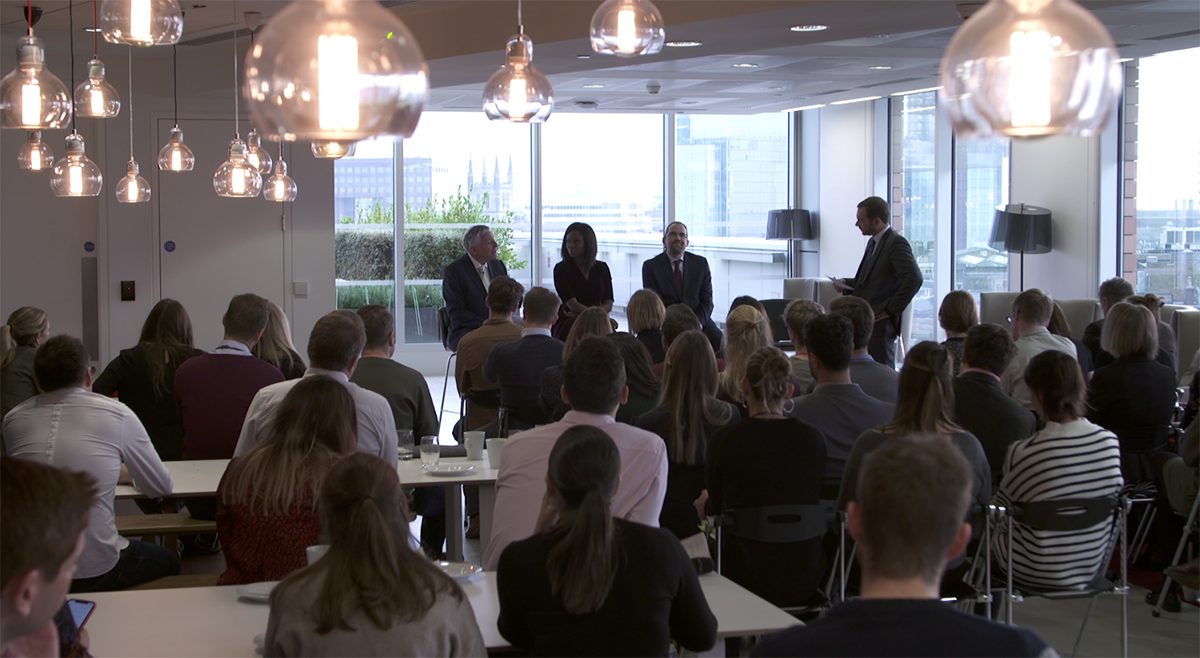Beyond fads and fears - What is the media's role in the AI debate?

We’ve all read the news reports telling us how much of our job will be handled by a computer in a decade’s time – and there was that episode of Black Mirror that gave the whole country nightmares for a week. In this climate, it’s no wonder that there’s a fearfulness surrounding AI – the news and entertainment media are incredibly powerful in shaping popular perceptions of the technology, with hype and scaremongering often getting in the way of a more nuanced discussion.
Off the back of our global AI report, published in the summer, the FleishmanHillard Fishburn tech practice hosted a breakfast panel to debate how we can have a more level-headed discussion about the future of AI in the UK, and how it can be harnessed to benefit society.
Joining moderator Pete Meikle were Lord Clement-Jones CBE, Chair of the House of Lords Artificial Intelligence Select Committee; Claudia-Liza Armah, 5 News anchor; and Dave Coplin, CEO of technology consultancy The Envisioners. Here’s what we learned:
The prize is too great to leave on the table
To take just healthcare as an example, AI has the potential to transform the way we diagnose and treat disease, and save countless lives. But, as Dave Coplin pointed out, if we don’t inspire the public at large about AI and tell a positive story about it, that potential will remain unrealised. We’re not seeing real inspiration – kids, for example, are always being told the bad things technology could do to them, without hearing the vision of how it can change the world for the better.
A question of public trust
The panel was clear that without broad public trust on AI and how technology companies use their data, it will be extremely difficult to take the technology forward. Lord Clement-Jones explained how there needs to be a regulatory framework in place to ensure that, when companies apply AI, they do it in an ethical way. Agreeing on this ethical framework would allow business to take advantage of the opportunities, build public trust and ensure that AI and its algorithms are bias-free.
Get tech in front of the media
Given the frenzy that tends to erupt around every AI or data-related scandal, you can see why tech leaders’ default stance regarding the media is to avoid at all costs. However, Claudia-Liza Armah made the point that an increased willingness from the tech C-suite to appear in the press or broadcast media could move the needle on telling a more positive story around AI. There’s a lack of access that is preventing a more inspirational narrative getting across.
From STEM to STEAM
Government and business shouldn’t neglect the arts and critical thinking when planning the skills that will be needed for the AI future. The panel discussed how creative skills will be vital in deciding how we augment AI technology in an ethical and productive way, and that a narrow focus on STEM subjects will leave us unable to perform many of the more analytical and human-centric jobs that AI will create.
Boldly go to HMV and buy Star Trek DVDs
From ancient Greece’s Talos and Mary Shelley’s Frankenstein to modern movies like Terminator 2 and The Matrix, the idea of a menacing and destructive AI has been a part of popular culture for thousands of years. But paid-up Trekkie Dave Coplin explained that the writers of Star Trek made a point of never having technology be the bad guy – leading to a whole generation growing up with a more positive view of robotics and AI. So if you want to do your bit for changing the AI narrative, you could do worse than introducing your ten-year-old to Mr Spock…
Thank you to our panel for such an engaging debate. If you’d like to read our global report on AI, surveying both consumers and tech leaders you can download it here.
James de Mellow, Technology
Find Out More
-
Platinum CMS Award
March 13, 2024
-
Changing Communications Tack at Mobile World Congress
February 21, 2024


